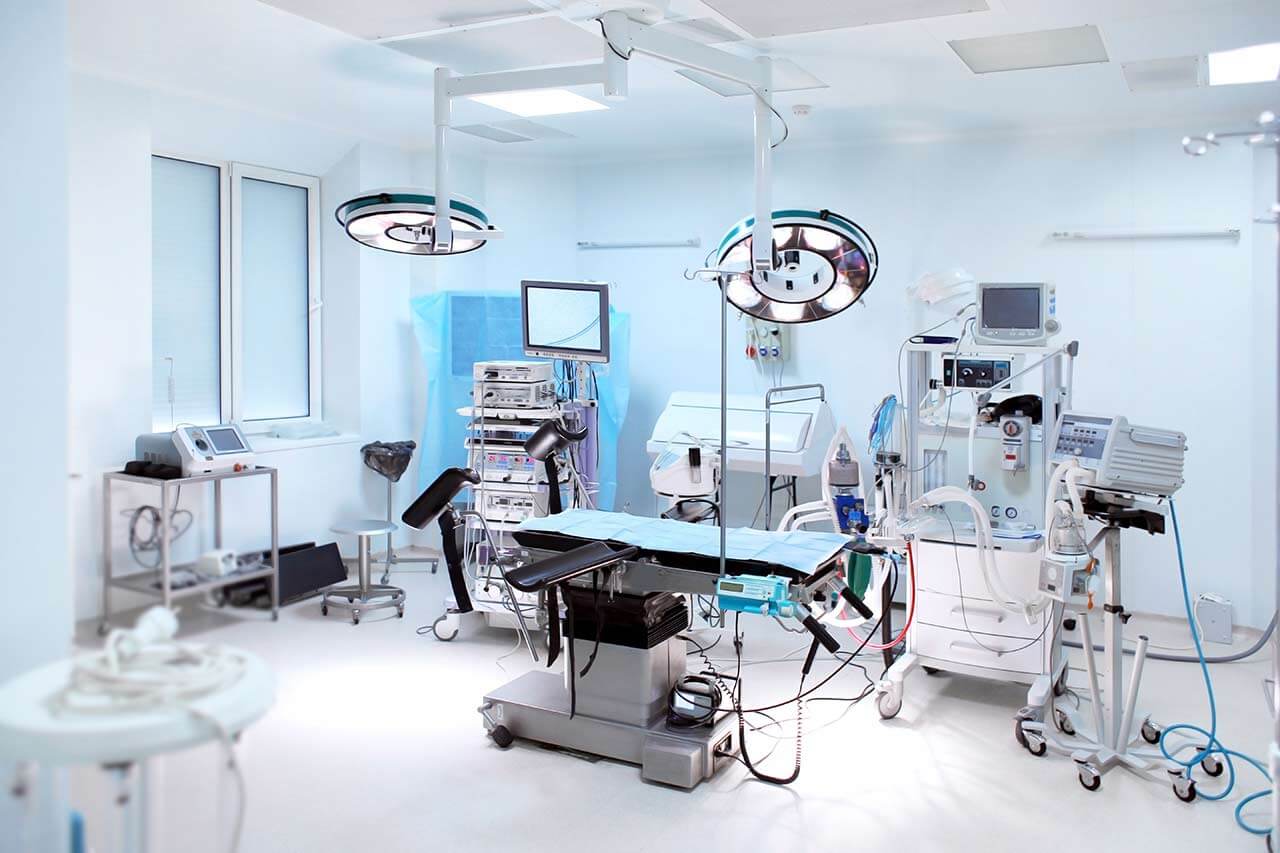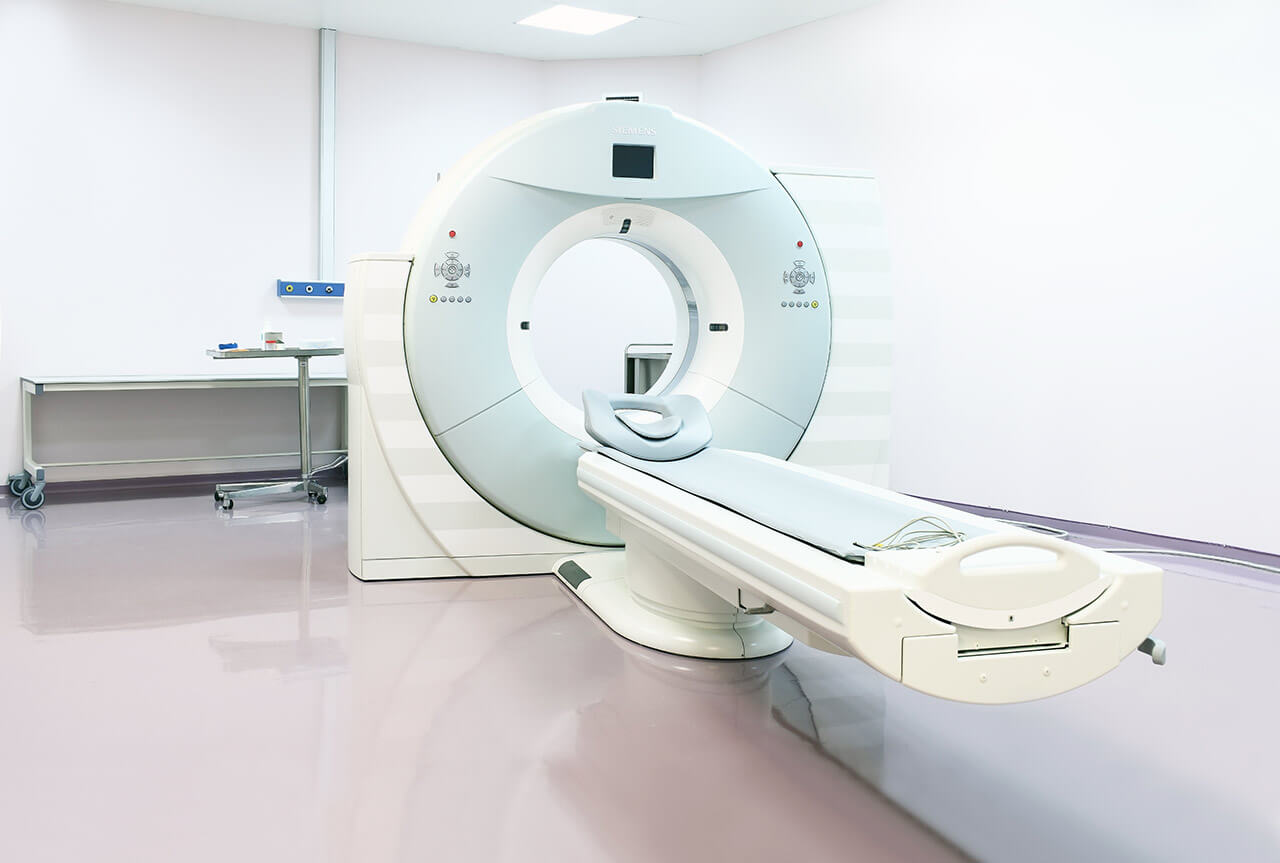
The program includes:
- Initial presentation in the clinic
- clinical history taking
- review of medical records
- physical examination
- laboratory tests:
- complete blood count
- general urine analysis
- biochemical analysis of blood
- inflammation indicators (CRP, ESR)
- indicators blood coagulation
- gynecological examination
- ultrasound examination: pelvis, abdomen
- preoperative care
- resection of condylomas
- histologically and immunohistochemically
examination of the remote tissues - symptomatic treatment
- control examinations
- the cost of essential medicines and materials
- nursing services
- full hospital accommodation
- explanation of future recommendations
Required documents
- Medical records
- Biopsy results (if available)
Service
You may also book:
 BookingHealth Price from:
BookingHealth Price from:
About the department
The Department of Gynecology at the Asklepios Hospital Barmbek Hamburg offers the full range of medical services for women with benign and malignant diseases of the reproductive system. The primary focus of the department's specialization is the treatment of female reproductive cancers, such as uterine cancer, cervical cancer, ovarian cancer, vaginal cancer, and vulvar cancer. Patients with benign gynecologic diseases such as endometriosis, uterine myomas, cervical dysplasia, polycystic ovaries, pelvic prolapse, and urinary incontinence are also treated here. The department is proud of its advanced operating rooms, adapted to perform sparing minimally invasive interventions. The department's gynecologists also have a perfect command of the da Vinci robot-assisted surgical techniques. Such operations are characterized by high precision and a low trauma rate, while their efficiency is not inferior to open surgery. The da Vinci surgical system is successfully used in the department for the removal of uterine and cervical malignancies, the removal of myomas, the treatment of endometriosis, and the repair of pelvic organ prolapse. Operations using the da Vinci surgical system are performed by specially trained surgeons with experience in performing interventions of this kind. The department's team of gynecologists works hand in hand with breast specialists, obstetricians, urologists, radiologists, oncologists, and other experts to provide each patient with comprehensive medical care. The department is headed by Prof. Dr. med. Gerhard Gebauer.
The department is part of the Cancer Center, certified by the German Cancer Society (DKG). Therefore, the medical facility has advanced knowledge and long experience in the diagnostics and treatment of cancer of the female reproductive system. The most common cancers in the department's clinical practice are uterine, cervical, and ovarian cancers. Should cancer be suspected, the first step is comprehensive diagnostics. If cervical cancer is suspected, a Pap test and colposcopy are performed. If the results of these examinations are unsatisfactory, a biopsy will be prescribed. If the cervical tumor has spread outside the organ, additional imaging (ultrasound, X-ray, CT, or MRI scans) is performed to detect the affected lymph nodes and metastases. If, based on the diagnostic results, a gynecologist confirms the diagnosis of cervical cancer, an interdisciplinary tumor board elaborates a treatment regimen. An important factor in the planning of treatment tactics is the stage of cancer, the age of the woman, and her general health condition. In the early stages of cancer, the department's gynecologists give preference to minimally invasive organ preservation tumor resection. A trachelectomy, the surgical removal of the cervix and adjacent tissues, is usually performed for young women. This treatment option allows doctors to achieve good therapeutic results and preserve fertility. Patients with advanced stages of cervical cancer undergo a hysterectomy, a surgical procedure to completely remove the uterus, after which a woman has no chance to become pregnant and give birth to a child. Hysterectomy is a last-line surgical treatment and may only be prescribed when doctors consider other types of surgical procedures ineffective. Hysterectomy is performed in the department either through a transabdominal approach or a minimally invasive approach. Hysterectomy using the da Vinci surgical system is also practiced here. In advanced stages of cervical cancer, the operation is supplemented with chemotherapy and/or radiation therapy.
Women with ovarian cancer often seek medical help from the health facility. The diagnostic protocol for suspected ovarian cancer includes the study of the patient's medical history, ultrasound scans, computed tomography, magnetic resonance imaging, and biopsy. The first-line treatment for ovarian cancer is a surgical intervention, the extent of which depends on the stage of the oncological process. If the tumor is localized and does not spread beyond the organ, surgeons remove the ovaries and the uterus during the procedure. When ovarian cancer is diagnosed in young women who have plans to conceive a child in the future, gynecologists strive to perform a more sparing surgical treatment during which only one ovary is removed while preserving the second one and the uterus. Following surgery, chemotherapy is almost always required. In cases of advanced ovarian cancer, the most effective treatment is cytoreductive surgery, during which the specialists remove all visible cancer foci in the abdomen and pelvic cavity. The resection may be extensive, involving the removal of not only the ovaries, uterus, fallopian tubes, and lymph nodes but also parts of the colon, greater omentum, a portion of the bladder, or even the intestines. The decision on the optimal type of surgery and additional conservative treatment methods is made during an interdisciplinary tumor board.
The department's team of doctors also specializes in the treatment of benign gynecologic diseases. Of particular interest in this area is the treatment of endometriosis. In this condition, cells similar to the inner layer of the uterus (endometrium) grow outside the uterus, for example, on the peritoneum, ovaries, or fallopian tubes. Despite its benign nature, endometriosis causes serious discomfort and health problems, and can potentially lead to infertility. Diagnosis requires a number of tests, including gynecologic examination, ultrasound scanning, and laparoscopy. As for the treatment, it can be both conservative and surgical. If small foci of endometriosis are detected, the department's gynecologists prescribe a course of drug therapy, which is based on the intake of hormones. Severe forms of the pathology with the formation of large foci of endometriosis are most often treated with surgery. The department's specialists perform surgery using minimally invasive techniques, so patients recover very quickly and there is no need for a long hospital stay. In some clinical cases, the department's gynecologists combine surgery with hormone therapy.
The department specializes in the diagnostics and treatment of the following gynecologic diseases:
- Malignant gynecologic diseases
- Uterine cancer
- Cervical cancer
- Ovarian cancer
- Vaginal cancer
- Vulvar cancer
- Benign gynecologic diseases
- Endometriosis
- Uterine fibroids
- Cervical dysplasia
- Polycystic ovary syndrome
- Pelvic organ prolapse
- Urinary incontinence
- Other pathologies
The department's range of diagnostic and therapeutic options includes:
- Diagnostics
- General gynecologic examination
- Colposcopy
- Hysteroscopy
- Laparoscopy
- Ultrasound scans
- Computed tomography
- Magnetic resonance imaging
- Laboratory tests
- Biopsy followed by a histological examination
- Treatment
- Conservative treatment
- Drug therapy, including hormone therapy and chemotherapy
- Botulinum toxin injections for urinary incontinence
- Surgical treatment
- Minimally invasive surgery
- Uterine fibroid removal
- Hysterectomy (removal of the uterus)
- Endometriosis surgery
- Surgery for uterine, ovarian, vaginal, and vulvar malignancies
- Robot-assisted interventions using the da Vinci surgical system
- Surgery for uterine, ovarian, vaginal, and vulvar malignancies, including lymph node removal
- Targeted removal of pelvic sentinel lymph nodes in cases of malignant diseases
- Hysterectomy
- Uterine fibroid removal
- Endometriosis surgery
- Reconstructive plastic surgery for pelvic organ prolapse
- Open surgery (performed extremely rarely)
- Minimally invasive surgery
- Conservative treatment
- Other medical services
Curriculum vitae
Higher Education
- 1988 - 1995 Medical studies, Christian Albrecht University of Kiel.
- 1996 Thesis defense and doctorate, Institute of Immunology, Christian Albrecht University of Kiel.
- 2003 - 2006 Management studies, Master of Business Administration, Neu-Ulm University of Applied Sciences and Hannover University of Applied Sciences and Arts.
Professional Career
- 1995 - 2000 Preparation for board certification, Research Fellow, Department of Gynecology, University Hospital Erlangen-Nuremberg.
- 2000 - 2002 Research Fellow, Sidney Kimmel Comprehensive Cancer Center, San Diego, California, USA.
- 2000 Board certification in Gynecology and Obstetrics, Bavarian Medical Association.
- 2003 - 2004 Senior Physician and Surgeon, Department of Gynecology, Hannover Medical School.
- 2003 - 2004 Project management for the construction, equipment, and commissioning of the Gynecology Center at the Hannover Medical School.
- 2003 Habilitation and the title of PD, Hannover Medical School.
- 2003 Fellowship, Sidney Kimmel Comprehensive Cancer Center, San Diego, California, USA.
- 2004 - 2008 Managing Senior Physician, Department of Gynecology, University Hospital Heidelberg.
- 2005 Professorship, Ruprecht Karl University of Heidelberg.
- 2005 Fellowship, St. Vincent Hospital Cancer Center, New York, USA.
- 2005 Fellowship, Department of Oncology, Institut Jules Bordet, Belgium.
- 2006 - 2008 Advisory Board Member of the Tumor Bank, National Center for Tumor Diseases, University Hospital Heidelberg.
- 2006 Extraordinary Professorship, Ruprecht Karl University of Heidelberg.
- 2007 - 2008 Ethics Committee Member, Ruprecht Karl University of Heidelberg.
- 2007 - 2008 Advisory Board Member, Clinical Research Coordinating Center, Ruprecht Karl University of Heidelberg.
- 2008 Additional qualification in Specialized Gynecologic Surgery with a focus on Gynecologic Oncology.
- 2009 - 2017 Head Physician, Department of Gynecology, St. Mary's Hospital Hamburg.
- Since 2017 Head Physician, Department of Gynecology, Asklepios Hospital Barmbek Hamburg.
Research Interests
- Study of gene expression in cancer.
- Clinical research in the field of gynecologic oncology and mammology.
- Drug therapy of female reproductive cancers and breast cancer.
- Treatment of micrometastases in breast and ovarian cancer.
- Study of molecular markers of cervical cancer.
- Study of molecular changes in breast and ovarian cancer.
Prizes, Awards and Honors
- 1999 Poster Award, Hamburg Symposium on Tumor Markers.
- 2002 ASCO Merit Award, 38th Annual Meeting of the American Society of Clinical Oncology (ASCO), USA.
- 2003 Presentation Award, Working Group on Gynecologic Oncology (AGO).
- 2004 ASCO Merit Award, 40th Annual Meeting of the American Society of Clinical Oncology (ASCO), USA.
- 2004 Best Research Award, North Eastern German Society of Gynecological Oncology (NOGGO).
- 2005 Presentation Award, joint meeting of the German Society for Senology (DGS), the Austrian Society for Senology (ÖGS) and the Swiss Society for Senology (SGS).
Memberships in Professional Societies
- American Society of Clinical Oncology (ASCO).
- Working Group on Gynecologic Endoscopy (AGE).
- Working Group on Gynecologic Oncology (AGO).
- Professional Association of Gynecologists (BVF).
- Gynecology and Obstetrics Federation of Germany (BLFG), Chairman of the Hamburg Association of Gynecologists.
- German Society for Gynaecology and Obstetrics (DGGG).
- German Society for Senology (DGS).
- German Society of Ultrasound in Medicine (DEGUM), Division of Breast Ultrasound.
- German Cancer Society (DKG).
- European Society of Gynaecological Oncology (ESGO).
- Hamburg Obstetrics Society.
- North German Society of Gynecology and Obstetrics (NGGG).
- North Eastern German Society of Gynecological Oncology (NOGGO).
- Germany Society of Managing Physicians (VLK).
Photo of the doctor: (c) Asklepios Klinik Barmbek
About hospital
The Asklepios Hospital Barmbek Hamburg is an academic hospital of the University of Hamburg. The hospital was opened in 2005, and today it is one of the best and most modern medical centers in Europe. The priority areas of specialization of the medical facility are emergency medical care and comprehensive treatment of cancer, urologic diseases, gastrointestinal diseases, and pulmonary diseases, as well as abdominal surgery and thoracic surgery. The hospital provides patients with top-class medical services that meet international standards.
The hospital has 620 beds. More than 36,000 inpatients and about 74,000 outpatients are treated here every year. The patients' health is in the safe hands of a highly professional team of over 1,600 doctors and nursing staff.
The hospital offers high-quality diagnostic and therapeutic services and strictly follows current clinical protocols. The hospital boasts modern infrastructure and state-of-the-art medical equipment. The hospital is one of the few in Europe where patients are successfully operated on using the da Vinci surgical system. The hospital also houses well-equipped endoscopy rooms, cardiac catheterization laboratories, laser surgery rooms, and operating rooms for arthroscopic interventions. All these technical resources contribute to effective and, at the same time, minimally traumatic treatment.
It is worth noting that the hospital has vast experience in serving international patients. According to the Medical Travel Quality Alliance (MTQUA), the Asklepios Hospital Barmbek Hamburg ranks among the top three medical centers worldwide for medical tourism.
The medical center also holds the international DIN EN ISO 9001:2015 quality certificate, attesting to the excellent medical services provided. For its outstanding achievements in oncology and surgery, the hospital has been awarded certificates from the German Cancer Society (DKG) and the German Society for General and Visceral Surgery (DGAV).
Photo: (с) depositphotos
Accommodation in hospital
Patients rooms
The patients of the Asklepios Hospital Barmbek Hamburg live in comfortable single and double rooms. Each patient room has an ensuite bathroom with a shower and a toilet. The patient room furnishings include an automatically adjustable bed, a bedside table, a table and chairs for visitors, a TV, a radio, and a telephone. Wi-Fi access is also available in the patient rooms.
Patients can also be accommodated in enhanced-comfort rooms, which additionally include a rest area with upholstered furniture and a working area with a desk and a reading lamp. The bathroom in the enhanced-comfort rooms includes necessary toiletries, changeable towels, bathrobes, slippers, and a hairdryer. The enhanced-comfort rooms correspond to the standards of a high-class hotel.
Meals and Menus
The hospital offers tasty and balanced meals. Patients receive several menus to choose from and can see the menu in advance using a special mobile application. The hospital takes patients' food preferences into account and offers a wide range of dietary and vegetarian dishes. Breakfast, lunch, and dinner are served in the patient's room.
There is a cozy cafeteria on the first floor of the hospital where one can enjoy a cup of aromatic coffee or delicious tea with a dessert. The cafeteria offers a wide selection of snacks and salads.
There is a small store on the territory of the hospital where one can buy fresh fruits, yogurts, sweets, and magazines.
Further details
Standard rooms include:
Religion
There is a prayer room on the first floor of the hospital where patients can find solitude for prayer.
The hospital has an evangelical pastor who is happy to talk with patients and support them in the process of their treatment.
Representatives of other religions are available upon request.
Accompanying person
Your accompanying person may stay with you in your patient room or at the hotel of your choice during the inpatient program.
Hotel
You may stay at the hotel of your choice during the outpatient program. Our managers will support you for selecting the best option.





